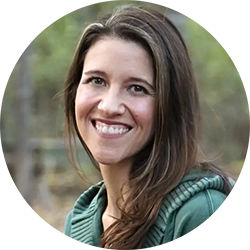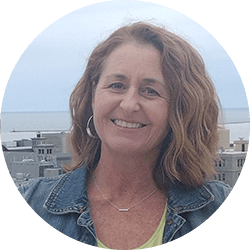Guest blog by Bri Kennedy, Hannah Dennis, and Paulette Schembri
With women making up half the population, women’s health and wellbeing are important topics to explore. Whether you’re a woman yourself or have some favorite females in your life, join us as we discuss the mental, emotional, and physical changes that can occur throughout a woman’s life.
Childbearing years
For this article, we will be referring to your 20s and 30s as the childbearing years. Please recognize not all women experience pregnancy and childbirth. In fact, women’s health during this time is super individualized and should be categorized as such. For all women struggling during these years, we see you and recognize you.
If pregnancy is in your journey, here are some changes that you will likely experience. Increased blood volume, hair and skin changes due to increased hormone levels, posture changes/shifts, digestive issues, and uterine expansion. Mental and emotional changes, although very common, should not be taken lightly. Prenatal and postpartum depression and anxiety are real challenges women can experience. Check in on those mamas in your life as support goes a long way. Nobody said growing another human would be easy, right?
Regardless of choosing the route of pregnancy, a woman still experiences other physical changes during these years. A woman’s metabolism begins to decline 2-4% per decade. Muscle mass and function also starts to decline as peak bone mass occurs in the late 20s. Due to a lower natural supply of hyaluronic acid there may even be some skin changes.
Mental changes will naturally occur due to the fluctuating hormones within a woman’s cycle.
- During menstruation a woman often feels reflective, withdrawn, and has more of an inward focus
- During the follicular phase of the cycle a woman tends to be cheerier and more energetic, as well as concentrated and creative
- The ovulatory phase can be characterized by a woman being communicative, productive, and expressive
- Lastly, the luteal phase may be the least favorite, as a women can often feel bloated, moody, and assertive
Perimenopause
As a woman transitions out of the childbearing years, she enters a phase that is called perimenopause. The age of onset varies from woman to woman, but for most women the age of onset will occur in her forties. It’s important to note that not everyone’s experience will be the same, including age of onset, number of symptoms experienced, and duration of perimenopause. However, hopefully learning more about this stage of life can empower each woman to take charge of her health and know when something is different and perhaps needs attention.
Currently, many millennial females are about to enter perimenopause or are already experiencing symptoms. One of the first physical symptoms that is common in perimenopause is a change in menstrual cycle, as these cycles can become less predictable. It’s always important to know your own body and its “normal” so that you know when a change is occurring. Other physical symptoms are insomnia or sleep disturbances, hot flashes, and possible weight gain.
Mental health matters to us all and the mental or emotional symptoms one can experience during this time include mood changes and/or brain fog. These might come out of nowhere and have you wondering why you feel negative or like you are forgetting something but know that it might be your hormone fluctuations contributing to this. It isn’t all in your head and there is always strength in asking for help when you need it whether from your doctor, a loved one, a therapist, or friend.
Menopause and postmenopause
Menopause is a natural phase in every woman’s life. If you have ovaries, you will go through some form of menopause. This shift in the body can bring significant changes to your physical, mental, and emotional health. Research shows that approximately 75% of women will experience some menopause symptoms and 25% will experience serious symptoms. However powerful the symptoms are, research by Harvard shows that most women are reluctant to talk about menopause and that the conversation remains largely taboo—especially menopause in the workplace.
Until now that is, as the generation of women going through menopause are the GenX’rs and they won’t go down without a fight.
Consider some insight from one of our contributors. She says, “What I noticed in menopause, the year when I didn’t have a period and my estrogen and progesterone levels declined, was some muscle aches, worsening anxiety, sleep issues and mood swings. I have lived with anxiety since I was 10 years old, so when it became apparent that it was really heightened, I knew it had to be hormonal. When I moved into post menopause there were more symptoms that arose like poor concentration and cognitive issues, achy tendons and joints, hot flashes and night sweats. The next two years of post-menopause brought even more cognitive issues, vaginal dryness, digestive issues, low libido as well as another shift in mood and sleep.”
One in four women living with menopause symptoms are worried about being able to cope with day-to-day life. The women in this generation are now in the best part of their careers, so this stage of life can be scary, frustrating, and exasperating. Keeping up with all the changes can feel like playing a game of dodgeball. Many of us have been there and totally understand the frustrations. Menopause marks the end of your fertile years, but it is far from the end of your life! The life expectancy for a woman in the United States is 81 years, so you have another 30 years of life left to explore and create.
According to Dr. Michael Coppa, MD OB/GYN, there are some benefits of menopause to offer a positive outlook. The most apparent is the end of menstrual periods, when your ovaries stop releasing eggs and you can no longer get pregnant. There is no risk of bleeding, spotting, menstrual cramps or having to buy tampons or pads. You may also have relief from premenstrual syndrome with bloating, moodiness and headaches. Another plus in this time of your life is that your body hair may grow slower or not at all. If you were one who had to shave daily or have a monthly wax appointment you may see this change and could save some money. Finally, menopause can also bring a new zest for life. One study found that optimism rises in our 50’s. At this stage in our life, we will have less stress and more time to focus on ourselves.
One of our contributors attests that she feels more empowered, confident and excited to create goals for the future. She loves and appreciates herself for her values and knows how to take care of herself physically, mentally, and emotionally to be her best every day. As a side note, Personify Health makes it easy to keep your health and wellbeing top of mind with our amazing platform loaded with unique challenges, journeys and daily habits that remind you that self-care is needed to be at your optimum.
Supporting women’s health throughout the years
In all stages of womanhood, it is important to take care of yourself and stay on top of how you feel. By taking charge of your health, you can reduce the “negative” aspects that come with aging. Remember, it’s a privilege to age and your health and wellbeing are worth it!
Meet the authors

Bri Kennedy, MS, RD, LD is a Health & Wellbeing Specialist at Personify Health, supporting Keurig Dr Pepper’s wellness program. As a Registered Dietitian Nutritionist, Bri brings expertise in women’s health, diabetes care, and weight management.

Hannah Dennis is a Health & Wellbeing Specialist at Personify Health supporting SC Johnson’s wellbeing program. Hannah is an Integrative Health Practitioner that brings her passion, personal experiences, and holistic mindset into helping others thrive into better health.

Paulette Schembri, NBC-HWC is a National Board-Certified Health and Wellness Coach in the Greater Denver Metro Area and has been providing stress management sessions and fitness instruction for 15+ years. She has lived with high anxiety since the age of 10, has a degree in Psychology and a degree in Communication, is a certified Menopause Coach, a Mental Health First Aid Instructor as well as having over 20 years reducing stress and anxiety using movement, mindfulness and breath for stress reduction and mind/body/soul centering.



